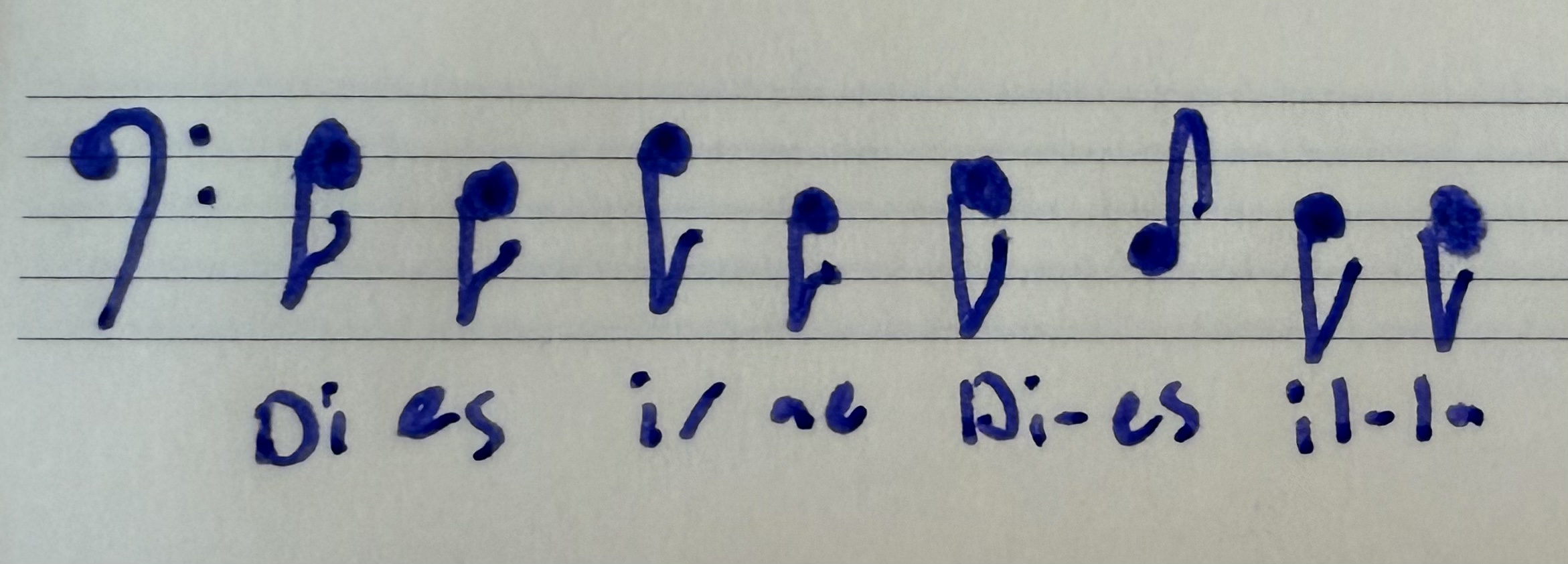Sounding the spoiler horn: not only will I be making no effort to avoid spoilers for K-Pop Demon Hunters here, I will be actively assuming that the reader has seen the movie.
“Your favorite being a Saja Boys song is not surprising at all,” I was told, after mentioning to a friend that Your Idol was the standout piece for me off the K-Pop Demon Hunters soundtrack. Which I read as a commentary on what I’m like; the stars of the movie, the heroes, are clearly HUNTR/X. Surely the titular characters ought to be the favorite? And instead, here I am, favoring the villains.1 And, more so, I’m favoring the villains who only have two tracks listed.
The other track, where Saja Boys are introduced, I actually hate. To my ear, Soda Pop is somewhere between “vapid” and “insipid.” (That is, admittedly, the point of Soda Pop; the audience is supposed to hate it. It is meant to be a catchy nothing, an earworm devoid of actual artistic value.) Your Idol, on the other hand, is after the inflection point of the story; its honesty mirrors that of What It Sounds Like. This is what Saja Boys truly think of their audience: “You know I’m the only one who’ll love your sins.” They are the abusive partner, whispering in your ear, that you don’t deserve anything better than this.
What elevated the song above everything else in the soundtrack, though, were the overt religious references. It opens with a choir used as a percussion instrument, demanding the audience to “pray! for! me! now!” And then the Latin kicks in. It’s a dies irae, one of the most famous musical leitmotifs out there:

Except, save the first four notes, the first two words, it isn’t. It’s a very explicit reference to the dies irae, but it splits off and takes it somewhere else.
The original dies irae comes from the Requiem mass. Centuries of use in Roman Catholic funerary rites have made it an auditory icon2 for death, for loss, for doom. That’s what the line says; the Latin “Dies irae, dies illa” translates as “day of wrath, day of doom.”
The chorus—behaving as something of a Greek chorus within the structure of the film—instead starts off with “dies irae illa,” which really comes to nothing more than a grammatical tweak; it’s still “day of wrath and doom,” and not much has changed. “Vos solve in favilla,” the next line, is slightly more of a grammatical tweak; from “Solvet sæclum in favilla”, “Heaven and Earth in ashes ending,” it has become the more direct “turn you into ashes”.3
The final two lines are a complete digression from the original, and are quite clear about what’s going on: “maledictus erus/in flamas eternum” is just “cursed master/in eternal flames.” Our late-arriving Greek chorus may not be providing much additional dramatic tension, as this point in the story is already very clear about the presence and nature of the Big Bad, but they sure are reinforcing what’s going on.
That combination of choral styling with a beautifully, artfully-applied classical reference, was what truly hooked me on the song. There’s more to read into the rest of the lyrics — a lot of reiteration of the overall story points of “Don’t let it show, keep it all inside/The pain and the shame, keep it outta sight” that, to me, read as a trans allegory; the continuing use of religious symbolism, particularly the use of the word “idol” in the original sense, as something one worships in place of worshipping the theologically-approved-“correct”-god; the idea that they’re preaching to the choir, that they’ve got their captive audience and no longer even care to draw more people in…
I’m frequently someone who will listen to music without truly hearing the lyrics. I can, in point of fact, sing along quite well without having ever actually parsed the words as words, without digging into the meaning there. Which could be a bad thing, but might also just be that I’m more focused on the acoustic properties, about scansion rather than poetry. Every once in a while, though, the text grabs my attention and won’t let go. And every once in a while, that lines up just right with the years of classical music training under my belt, and I spend a morning writing a couple pages of analysis. It’s pretty cool living in a time where a movie that could have been a throwaway project instead got a level of attention to detail that inspired me this much.
- My second place is a toss-up between How It’s Done and What It Sounds Like, so HUNTR/X are at least on the podium! ↩
- A leitmotif, for those who didn’t know that word earlier. ↩
- A failing of English here, our lack of second-person plural. I could technically translate this as “turn y’all into ashes,” but y’all is evolving as a second-person informal plural, whereas I read “vos” as a second-person formal plural. ↩